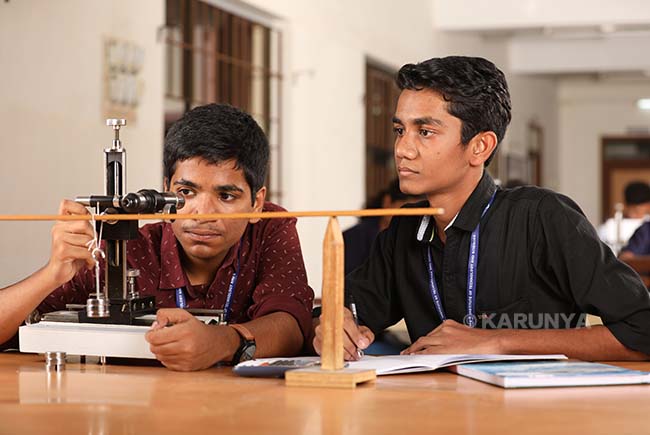
The B.Sc. in Applied Physics program is designed to provide students with a comprehensive understanding of the principles of physics and their practical applications in various fields. The curriculum integrates core courses in classical mechanics, electromagnetism, quantum mechanics, and statistical mechanics. This interdisciplinary approach equips students with the knowledge and skills necessary for applying physics to solve real-world problems.
Core courses cover a range of topics, including optics, electronics, materials science, and computational physics. The curriculum emphasizes hands-on experiences with laboratory work, experiments, and projects, allowing students to develop practical skills in applying theoretical physics concepts to practical scenarios. Students also explore the interdisciplinary nature of applied physics in collaboration with other scientific and engineering disciplines.
The B.Sc. in Applied Physics program provides flexibility through elective courses, allowing students to specialize in areas such as medical physics, environmental physics, or materials physics. This customization enables students to align their education with specific interests and career aspirations within the broad field of applied physics.
Industry exposure is a key component of the program, with internships, research opportunities, or collaborations with technology companies. These practical experiences ensure that graduates are well-prepared for careers as applied physicists, researchers, or engineers in industries such as telecommunications, healthcare, energy, or materials development.
Upon completion of the program, graduates are positioned for diverse roles in applying physics principles to address technological challenges and contribute to advancements in various industries. The B.Sc. in Applied Physics also serves as a foundation for advanced studies at the postgraduate level, enabling students to specialize further, engage in research, or take on leadership roles in scientific and technological innovation. Graduates emerge with the expertise to apply fundamental physics concepts to solve complex problems and drive progress in applied sciences and technology.